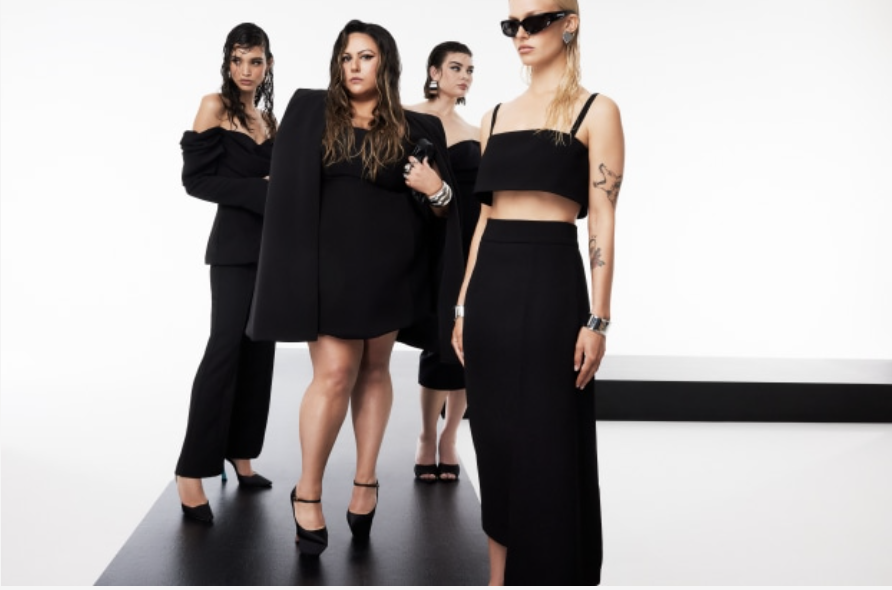
Billionaire retailer Solomon Lew’s fashion conglomerate, Premier Investments, has warned of a challenging trading environment after cost of living pressures slugged shoppers through the fourth quarter.
And conditions might not improve into Christmas as higher food, petrol and mortgages continue to constrict clothing and apparel spending.
This pressure on consumers was evident in the company’s stable of clothing and fashion brands – including Smiggle, Peter Alexander, Just Jeans and Portmans – which suffered a 2 per cent sales decline over August and September, reflecting the increasingly tough trading landscape for retailers.
The lurch into negative sales growth was a switch from sales expansion of 7.7 per cent over February and March.
“You have got to put a roof over your head, that is mortgage and rent. You have got to put food on the table and supermarket prices are outgrowing what everyone expected,” said John Bryce, the interim chief executive of Premier Retail, the company’s flagship fashion arm.
“It is tough on the consumer, and we are a consumer discretionary business. You need to do those things first before you come shopping with us.
“I think in the climate we are in we are happy and doing the best we can, but we are going to maximise our performance if the consumer can get better.”
Premier Investments, the $3.9bn fashion and investment conglomerate controlled and chaired by billionaire Mr Lew, ended 2023 with a slight dip in its statutory profit, although pre-tax earnings were stronger and the company also lifted its dividend strongly.
The group – whose investments include fashion brands, equity stakes in Myer and kitchen appliances company Breville as well as a Melbourne office tower – is continuing a strategic review to assess the optimal future structure of the company, which could eventually lead to a demerger of the various parts.
Revenue for the year ended on July 29 was up 10.7 per cent to $1.7bn.
Premier reported record sales led by its better-performing chains, Peter Alexander and Smiggle.
The company posted a statutory net profit of $271.1m for the period, down 4.9 per cent, which reflects a change to its accounting treatment of its large investment in Myer.
Adjusted net profit of $278.6m was up 6.4 per cent on 2022.
For its Premier Retail arm, which houses its fashion and apparel brands, earnings were up 1.5 per cent to $357.9m. Among its key chains, Peter Alexander recorded sales of $478.9m, up 11.8 per cent, Smiggle had record global sales of$319.8m, up 22.4 per cent. There were record apparel brands sales of $844.8m, up 4.6 per cent.
Some of its fashion chains that usually exhibit lower growth than Smiggle or Peter Alexander had a bumper year in 2023. Portmans delivered record sales of $165.6m, Jacqui E delivered its best sales result in over a decade and the strongest growth of all the group’s apparel brands, up 17.5 per cent, and Just Jeans delivered its second best sales result in history with sales of $307.1m, up 4.6 per cent.
Outside of its fashion chains, Premier Investments’ stake in Breville had a market value of $829.3m and the investment in Myer had a market value of $137.7m. At the end of fiscal 2023, it had closing cash on hand of $417.6m.
Premier Investments declared a final dividend of 60c per share, up from the 54c per share final dividend paid in 2022 – although that was topped up with a special dividend of 25c per share. The final dividend will be paid on January 24.
“Premier has once again delivered for shareholders,” Mr Lew said.
“Premier Retail delivered record results for the year.
“The operating results and continued strength of our balance sheet have allowed the directors to approve a record final dividend of 60c per share, taking full year dividends to 130c per share, up 4 per cent, underscoring our confidence in the strength of the business and its future prospects.”
Last month Premier Investments issued a trading update with guidance for the full year as well as the shock news of the departure of the chief executive of only two years, ex-JB Hi-Fi boss Richard Murray, and revelations that Mr Lew was considering a demerger of the group he founded as a cashbox after the 1987 sharemarket crash.
If a demerger proceeds, some of the best performing retail brands in the country – nightwear chain Peter Alexander and stationery store Smiggle – could be separated from the lower-growth chains such as Just Jeans, Jay Jays and Dotti.
Mr Lew said on Thursday the strategic review was under way and would assist in assessing the optimal future structure for the group, to ensure it is best positioned to maximise growth opportunities for the portfolio of brands.
He said it an update or conclusion on that strategic review was not likely until early 2024, with the company very much focused on the crucial upcoming Christmas trading period.
“The group is focused on the key Christmas trading quarter ahead, noting that results for the first half are always driven by this critical period,” Mr Bryce said.
Shares in Premier Investments ended down 13c, or 0.5 per cent, at $24.58.






















